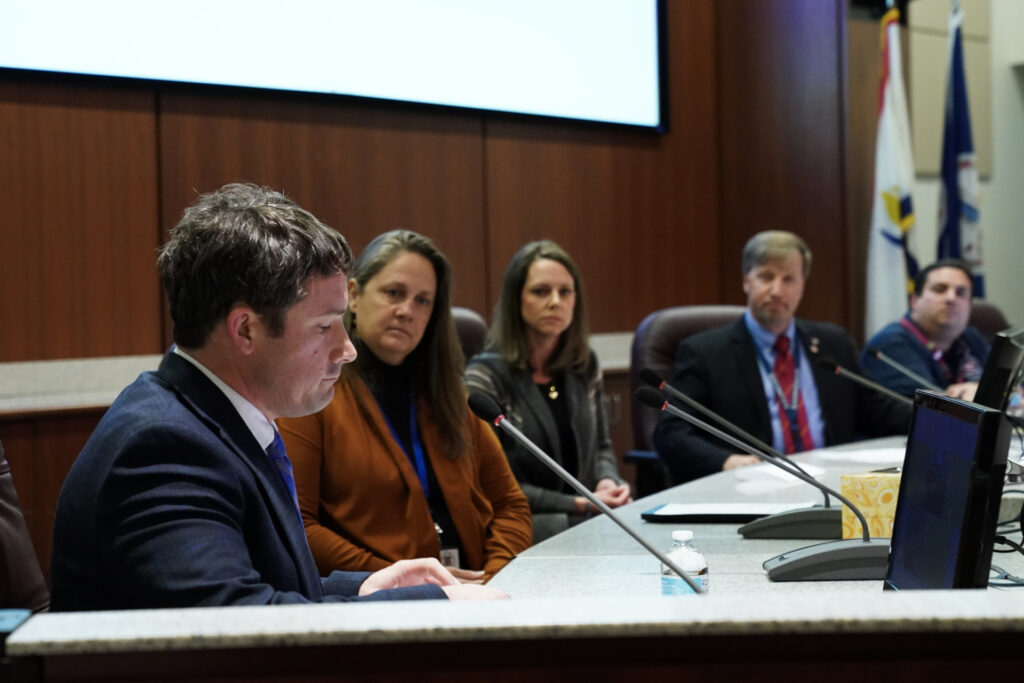Virginia’s Loudoun County Public Schools (LCPS) system has reportedly banned an unidentified teacher from adding a bible verse to her email signature.
The teacher was barred from putting John 3:16 in her email signature, one of the most widely known bible verses that reads, “For God so loved the world, that he gave his only Son, that whoever believes in him should not perish but have eternal life.”
The teacher is receiving help from the law firm Liberty Counsel, which noted that LCPS’s policy allows teachers to personalize their signature blocks with “personally-selected pronouns, quotations, pictures or phrases that are intended to express the teachers’ personal views on a variety of subjects, and that are attributable to the teachers, and not necessarily to LCPS.”
After LCPS banned the teacher from including the Bible verse in her signature block, Richard L. Mast and Hugh C. Phillips of Liberty Counsel sent a letter to LCPS Acting Superintendent Daniel Smith on March 23 demanding the teacher be allowed “to restore the Bible verse to her email signature block.”
“The directive from LCPS to [the teacher] to remove an expression of her personal faith from her email signature block, based solely on its perceived religious nature, constitutes religious discrimination,” Mast and Phillips wrote.
The two attorneys also emphasized that teachers are allowed to include pronouns in their signature block, which “are not objective and do not correspond with biological sex.”
They wrote:
Many teachers include personally-selected pronouns or “preferred” pronouns in their signature blocks. See Exhibit 7. The listing of pronouns communicates the teacher’s personal belief that gender or sex is not binary and cannot be presumed, and that pronouns are not objective and do not correspond with biological sex. These beliefs (and whether teachers should promote them to children) are matters of hotly contested public concern.
They also claimed the Bible verse does not violate the Constitution’s Establishment Clause because “a teacher’s private speech in the workplace is not state endorsement of any religious message the teacher may choose to convey.”
However, Smith responded to their letter last week, arguing that the teacher’s inclusion of a Bible verse violated the Establishment Clause and that she referenced bible quotes when speaking to her students.
Dr. Daniel Smith, L, takes his place on the board after being appointed interim superintendent of Loudoun County Public Schools at an emergency board meeting at LCPS Administrative Offices on December 8, 2022, in Ashburn, VA. (Jahi Chikwendiu/The Washington Post via Getty Images)
Smith wrote:
It is my understanding, however, that [she] is not including religious quotes in only her private correspondence, but also uses these religious quotes in her communications to students and their parents in her capacity as an LCPS employee. These communications are not private expression, but rather constitute school-sponsored speech bearing the ostensible endorsement of the School Division.
Simply put, the general inclusion of religious quotes in communications LCPS employees send while in their public capacities is not private expression and runs afoul of the Establishment Clause, and as such, bars LCPS, as a local governmental entity, from taking sides in religious disputes or favoring or disfavoring anyone based on religion or belief, or lack thereof.
Still, Liberty counsel attorneys disagreed, citing two first amendment cases they have litigated as proof that the Bible verse did not violate the Constitution’s Establishment Clause.
“The First Amendment requires that the school district may not discriminate against the teacher’s private religious expression,” the law firm noted in a statement. In fact, the U.S. Supreme Court and various federal courts have confirmed that organizations and individuals holding a religious viewpoint may not be subject to discrimination or censorship on the basis of that viewpoint.


